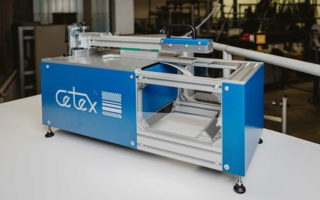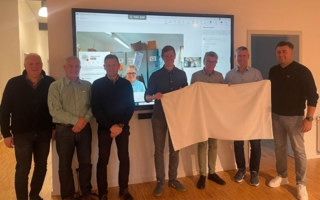11/03/2019 – Hermes Hansecontrol — auf Deutsch lesen
Assessing the risks accurately!
Manufacturers and retailers specialising in functional apparel need to ensure that their products comply with current legal requirements.
Otherwise, they may find that their image is irreversibly tarnished, or else they may be forced to initiate a costly product recall. To protect themselves against such risks, companies are increasingly relying on the expertise of external specialists. Experienced product testing providers such as Hermes Hansecontrol ensure that standards are already met in the country of manufacture.
The pressure on companies from both the legislature and the general public to offer toxin-free, non-hazardous, environmentally friendly and socially responsible products is growing by the day. This is reflected, among others, by the successful detox campaign launched by Greenpeace. Bearing the slogan “Detox my Fashion”, the NGO has already encouraged 80 global fashion brands, including H&M and Adidas, as well as discount chains such as Aldi, to commit to eradicating all contaminants from their clothing and to replacing them with unharmful substances by 2020.
Quality assurance and product safety – by experts
At the same time, consumers are becoming more demanding: They expect their clothing to be not only functional but also comfortable, stretchy, breathable and quick-drying. In response, the industry is increasingly relying on high-performance synthetic materials that offer more and more functions. This, in turn, requires efficient concepts for guaranteeing quality and product safety: After all, functional materials are often made from synthetic fibres that can be contaminated with hazardous substances during processing and may therefore constitute a genuine risk to health. Not only the textiles themselves but also processes such as impregnation, coating or dyeing with critical dyes can have a negative impact on health.
Not every company has the necessary experience or expertise in the field of quality testing. “Product managers often struggle to assess the real risks inherent in their products. Developing sensible quality assurance concepts and observing the many country-specific requirements likewise poses a significant challenge for many companies,” explains Bjarke Jørgensen, Global Business Development Manager, Hermes Hansecontrol.
As a long-standing partner to the textiles and sporting goods industry, the testing institute offers its customers testing services along the entire supply chain. Companies wanting to import merchandise to the European market from China or India must ensure during the production phase that the products in question comply with current EU and/or country-specific legislation. REACh, for example, the EU regulation on the use of chemicals, requires manufacturers and importers to take responsibility for the safety of all the chemicals used in the products they sell. To help its customers, the Hamburg-based product testing provider keeps a close eye on current debates about harmful substances as well as on all the latest legal requirements, whilst constantly adapting and further developing its range of tests.
Testing the physical and chemical properties of textiles
The experts at Hermes Hansecontrol’s in-house laboratories can test for a wide spectrum of properties and health-related aspects. To eliminate possible health risks, Hansecontrol tests functional apparel, e.g. for various perfluorinated substances, such as perfluorooctane sulfonate (PFOS) or perfluorooctanoic acid (PFOA) and their derivatives, as found, for example, in some water-repellent and soil-resistant textiles. Tests are also carried out for fluorotelomer acrylate (FTA) and fluorotelomer alcohol (FTOH) compounds, which are commonly used in the impregnation of materials, as well as for allergenic dispersion dyes and banned azo dyes in sportswear.
Beyond chemicals testing, other common tests include breathability, air permeability and waterproofing. In compliance with DIN EN 20811/ISO 811, one test entails checking how much pressure is needed for three droplets of water to penetrate the textile. During the test, the water pressure is constantly increased over an area of 100cm². As soon as the water droplets become visible, the test is considered complete and the recorded values shed light on the garment’s waterproofing levels.
Certified product safety – helping consumers decide
The services provided by Hermes Hansecontrol are based on national and international legal requirements as well as applicable regulations such as standards and recommendations. “These merely constitute minimum requirements. This is why we also test in compliance with our customers’ individual wishes and market-specific requirements. To gain a test mark, the product has to exceed the minimum legal requirements,” states Jørgensen, explaining how the institutes works.
The tested products can be awarded the widely recognised Hansecontrol certification mark. The marks cover a series of possible testing criteria: The test marks with the words “Tested in Germany”, Certified or Tested can be combined with various keywords, e.g. “fit for purpose” (plus a rating). Moreover, one or two keywords can be chosen in collaboration with the customer, e.g. “water vapour permeable – breathable” or “tested for fit”.
Test marks provide consumers with valuable assistance when buying functional clothing. To create maximum transparency for consumers, the Hansecontrol test marks can be supplied with a QR code at the customer’s request. This gives consumers direct access to the certification database, allowing them to view all the facts about the test mark.
Comprehensive support for retailers
Chemical analyses and tests for harmful substances still rank among the testing institute’s core services. Responding to the ever-increasing demands on the textiles industry, Hermes Hansecontrol has long since evolved from a supplier of individual laboratory tests to a flexible partner, offering a comprehensive range of testing capabilities along the supply chain. “We see ourselves as a partner that provides its customers with all-round support and consultation,” states Jørgensen when speaking about the company’s philosophy. Working in cooperation with its customers, the company also develops processes for supplier evaluations, factory audits, chemicals management, material requirements, random sample testing and recall management etc. This enables manufacturers and companies bringing functional clothing into circulation to build up an effective quality management system – ensuring they are always well prepared, even in the unlikely event of a product recall.




